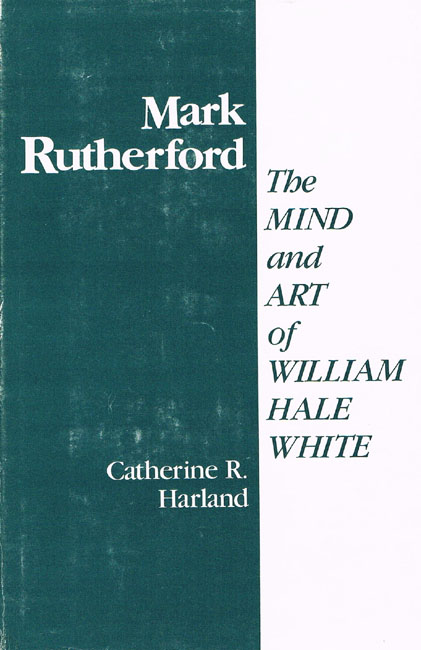Mark RutherfordThe Mind and Art of William Hale WhiteCatherine Harland |
 1988 Literary Criticism/ European / English, Irish, Scottish, Welsh 320 pp. 6x9 |
|||
|
read the full text of the book
|
This first major study of William Hale White in twenty years treats the entire range of White’s writing, focusing on the way he transformed events in his life into the patterns and obsessions that characterized his art. Late in life, White wrote, “I have a strange fancy—that there is one word which I was sent into the world to say. At times I can dimly make it out but I cannot speak it. Nevertheless it serves to make all other speech seem beside the maker and futile.” Despite an overwhelming sense of his own limitations, White tried until the end to discover that single word that would express the meaning of his life. His writing, as reflected in his novel Mark Rutherford, is thus essentially autobiographical, his fiction a reworking of how own spiritual and emotional struggle to reconcile himself with a world in which he so often felt alien. He found several avenues of potential freedom: in philosophy, especially that of Spinoza, whom he translated and edited; in a conscious and willed relationship with the natural world; and, most important, in a reinterpretation of his Calvinist heritage. By exploring the secular, experiential meaning of the Atonment, White penetrated to the “original necessity” of Protestantism. White wrote that he had tried to draw a “victim of the century.” But if White’s profound sense of displacement is partly owing to cultural circumstance, his “burning longing” for identity, value, and relationship would have been felt in any age. We are drawn to him because he countered both the perversity of history and the deep sadness of his own nature with constant courage. Catherine Harland traces White’s quest for freedom of being, for reconciliation with himself and his world. Catherine Harland is Associate Professor of English at Queen’s University, Kingston, Canada. | |||

